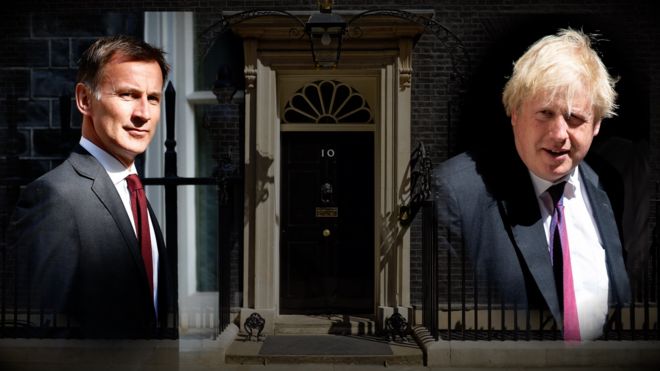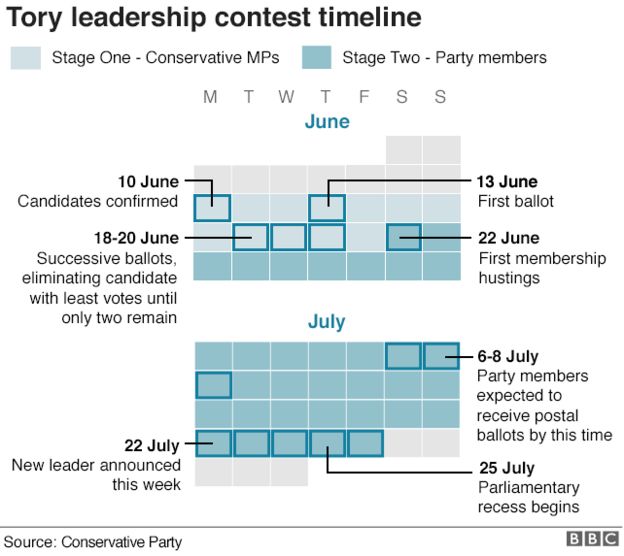Liam Fox is very relieved. The international trade secretary said he couldn't possibly contemplate two former journalists in the final.

After voting for Jeremy Hunt, he told some of us gathered outside the parliamentary polling booth that it was the party's job to "provide good governance - not entertainment".
Privately, Team Hunt successfully urged Conservative MPs to avoid a "psychodrama" as the final two compete for the votes of Conservative members.
The Gove team failed to persuade enough MPs to put two veterans of Vote Leave in the final.
Boris Johnson and Michael Gove have history.
Apparently best buddies during the EU referendum campaign, the relationship soured in the subsequent leadership contest in 2016.
Mr Gove knifed Mr Johnson in the front when he abandoned the latter's campaign and launched his own.
There were suggestions that team Boris saw Mr Hunt as an easier candidate to beat and that some of his supporters lent votes to the current foreign secretary to help him see off Mr Gove's ambitions.
A key Johnson aide denied this - but said he couldn't speak for others. And with Mr Johnson's own vote going up and demonstrating momentum, it's a difficult charge to prove.
So there is only one Leaver in the contest.
But Mr Hunt will portray himself as a born-again Brexiteer, who would contemplate no deal - and, as an apparently more competent minister, someone who also has more chance of delivering a deal.
The candidates' differences on Brexit seem in truth minuscule, each professing they want a deal that bins the backstop, or time limits it, despite likely opposition from Brussels.
Mr Johnson says it's "feasible" to leave on 31 October, while Mr Hunt is prepared to take a little longer if a deal seems close.
Beyond Brexit, Mr Hunt will suggest that he is a champion of the least well-off, the better to contrast with Mr Johnson's ambition to take more people out of the higher tax band.
He will be willing to admit past mistakes and pledge to put them right, for example, suggesting that social care has been underfunded.
And he will point to prominent Remainers and Brexiteers on his team to suggest he can bring the party and country back together.
But Mr Johnson has two clear advantages with the members.
First, he will cite polling to say only he has the chance of beating Labour if there is an early election. a distinct possibility for a leader of a minority government.
Second, he has the ability to make the party feel good about itself. He paints a big picture in vivid primary colours.
Mr Hunt has survived running the big-spending frontline Department of Health and Social Care but he may need to display more inspiration than perspiration as the contest moves to the country and the two candidates go head to head in 16 hustings.
Mr Johnson certainly has plenty of political opponents but often his worst enemy is himself.
Mr Hunt will be hoping his gaffe prone competitor will lose the plot and then lose the contest.
But so far Mr Johnson has reined in his characteristic eloquence, and exercised a quality many had thought would always elude him: discipline.
The stakes are high - the prize is the premiership, not just the Conservative leadership - so it would be surprising if the forthcoming contest didn't throw up heat as well as light.

https://www.bbc.com/news/uk-politics-48712244